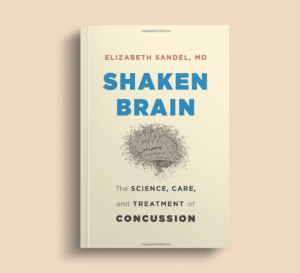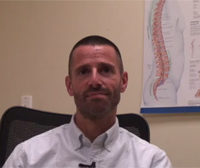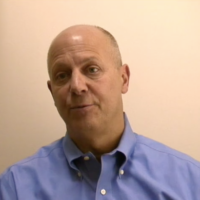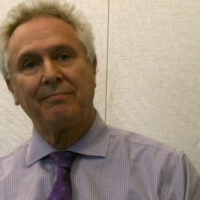Concussions or “Mild” Brain Injuries are Still Misunderstood
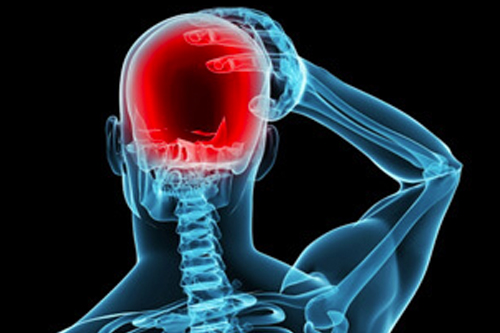
Even as the incidence of concussions is on the rise in the U.S. and in countries around the world, this injury from a blow to the head remains a largely misunderstood condition.
Concussions happen to people from all walks of life—young athletes, the elderly, people injured in motor vehicle accidents, victims of violent crimes, veterans, and workers injured on the job. Yet few people—including many physicians—fully grasp the full risks and long-term implications of concussions.
Brain injury was designated in September 2011 as a new specialty by the American Board of Medical Specialties. To date, only a few hundred physicians have qualified for board certification in brain injury.
Concussions are subtle, even sometimes invisible—making the condition difficult to diagnose and treat. As a consequence, many patients receive inadequate care and both patients and doctors find it difficult to come by useful information about preventing complications or recurrence.
With all the advances in medicine today, we still lack the technology to sufficiently diagnose less severe brain injuries and their sometimes accompanying disorders, such as post-traumatic stress disorder (PTSD). So the key for physicians charged with identifying and treating a concussion is gaining insight into who their patient was before his or her injury in order to understand which symptoms result from the concussion and which stem from other conditions. Obtaining such in-depth information in a normal 15-minute office appointment is challenging at best; it takes time and expertise to get to know a patient and what happened, make the proper diagnosis, and plan the best treatment.
Observing and talking with a patient is the first step, but if someone has such subtle symptoms that they don’t recognize a problem, or is reluctant to admit to a problem out of concern of being barred from returning to normal activities, may not even report the accident or, if it is reported, minimize the effects.
Yet treatment and preventing future problems depend upon early detection. After a concussion, a person may experience physical or cognitive symptoms, sleep disturbance, or emotional changes and challenges.
Here are some of the signs and symptoms of a concussion:
Physical
- Headache
- Nausea or vomiting
- Dizziness or balance issues
- Sensitivity to light or noise
- Numbness or tingling sensations
Cognitive
- Mental fog or confusion
- Short-term memory loss
- Sluggish thinking
- Difficulty concentrating
Sleep
- Drowsiness
- Trouble staying awake or falling asleep
- Sleeping more or less than usual
Emotional
- Irritability
- Sadness
- Nervousness or anxiety
- Mood swings
It’s critical to recognize the symptoms of a concussion early on. If someone you know has experienced a blow to the head or a fall, watch them carefully for any of these signs or symptoms. Better still, have them checked by a physician and be prepared to share details about the incident, review the person’s current symptoms, discuss any family or medical history, and detail what has changed since the head injury.
You Might Also Like
Concussions in College Athletes
Dr. Melita Moore, a physiatrist, sports medicine doctor, and brain injury medicine physician reports about her experiences when she served as the physician for University of California Davis sports teams. She discusses collision sports such as football and soccer that have a high incidence of concussion, but also other sports…
Concussion in ParaSport
Dr. Cheri Baluwet, a Paralympic athlete, physiatrist and sports medicine physician, has insights on concussion in Paralympic sports, and the differences in evaluation, prevention, and management for these elite athletes.
Concussion in Youth Sports
Dr. Andrew Judelson, a physiatrist and sports medicine physician at Spaulding Rehabilitation Hospital, discusses sports-related concussion evaluation and treatment at his outpatient clinic on Cape Cod.
Managing Concussion-Related Pain
Dr. Steven Moskowitz is a physiatrist specializing in pain management. He discusses the various painful conditions, including neck pain and headaches, that occur at high frequency after concussion and related trauma. He advocates for a biopsychosocial approach to the evaluation and treatment of these conditions.
The Post-Concussion Syndrome
Physiatrist Dr. Mel Glenn discusses the evaluation of the many symptoms that are part of a chronic condition called post-concussion syndrome or disorder that occurs in some patients after a concussion. He offers advice on the treatment of headaches, sleep disturbances, and other conditions.
Workers with Concussions
Dr. Maureen Miner is a physiatrist and an expert in brain injury medicine. She discusses her approach to patients with concussion and more severe brain injuries who need specialty care and referral to other specialists for evaluation and treatment.
Keep up to date
Get updates on the latest in concussion, brain health, and science-related tools from Dr. Elizabeth Sandel, M.D.
By clicking SIGN UP, you agree to receive emails from Dr. Sandel and agree to our terms of use and privacy policy.
Get the book!
